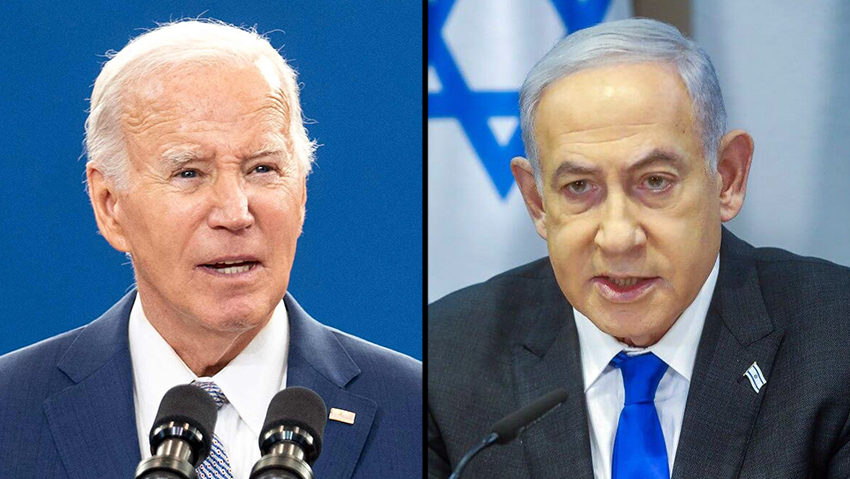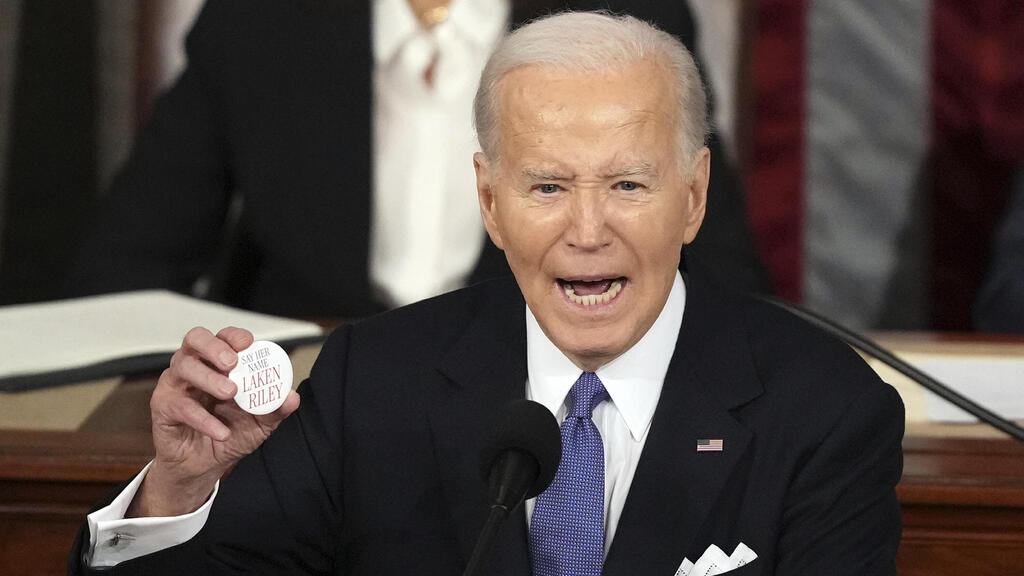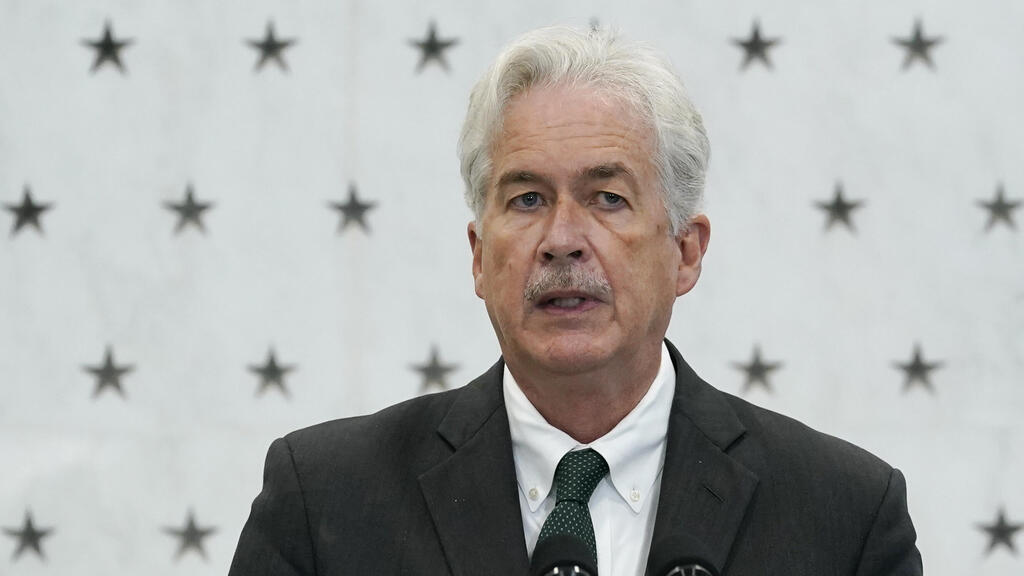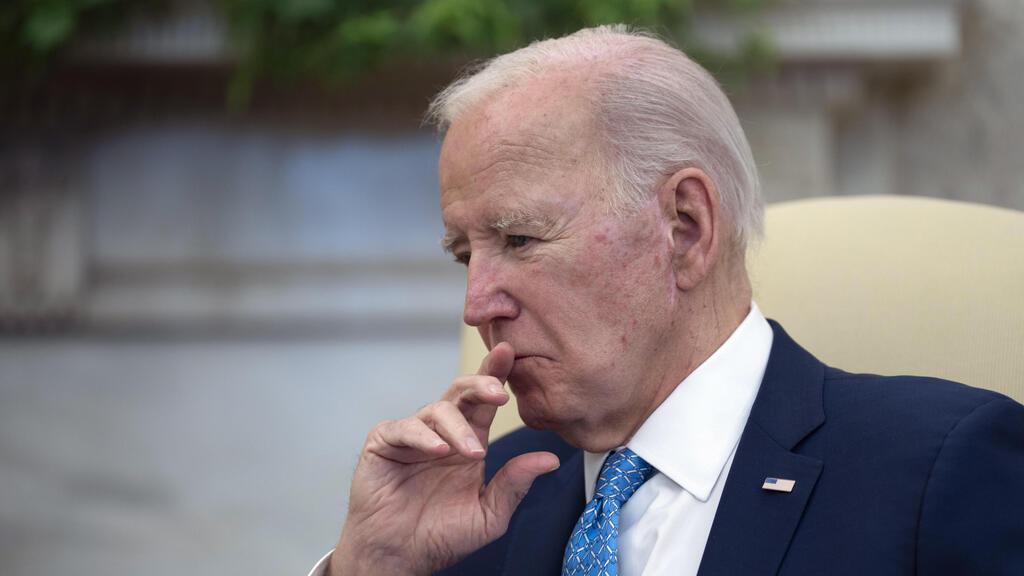Henry Kissinger used to say that Israel doesn’t have a foreign policy, only a domestic policy.
More stories:
It seems this saying is better befitting the Biden Administration at the moment, seeing as he alters his rhetoric toward Israel in general and toward the Netanyahu government in particular. Biden and his people have in recent weeks altered their rhetorical policy of public statements and of publicly criticizing Israel - things we would normally expect to be confined behind closed doors.
The administration staff, including Biden himself, stress their disagreements with Israel and with Netanyahu personally.
For example, in his annual State of the Union address, Biden made a vague commitment to Israel’s security, however most of the time devoted to the war in Gaza included words intended directly for the Israeli leadership, without specifically mentioning Netanyahu by name, to warn it not to use humanitarian aid as a bargaining chip.
This, while Israel has never even considered such a move and has in fact even increased the number of aid trucks admitted into the Gaza Strip compared with the pre-war days - in spite of the fact that this is an enemy population at a time of war. Vice President Harris even said in a speech she gave recently that the situation in Gaza amounts to a humanitarian catastrophe and called for an immediate ceasefire. This was the first time that such a senior Administration official uses this pair of words.
The change of the administration’s tone toward the war
In an interview on MSNBC, Biden was asked what his red line would be for Israel, and whether this include a ground maneuver in Rafah. He did not answer the question directly, but he did say that it would be impossible to tolerate another 30,000 dead Gazans.
The establishment media in Israel and in the United States reported this statement as if Biden’s red line is a ground maneuver in Rafah in general. We have recently been hearing reports that Administration personnel are considering breaking all the rules and even making military aid to Israel conditional on its not being used in Rafah. There has even been mention of abstinence from using the American veto in the UN Security Council.
5 View gallery


Joe Biden, Benjamin Netanyahu
(Photo: Eros Hoagland / GETTY IMAGES NORTH AMERICA / AF, Mirayam Alster)
Is Biden intent on locking horns with Netanyahu, who is persona non grata within the American left, only in order to placate the Democratic and progressive base, which is frustrated by Biden’s policies toward Israel? This is the same Democratic and progressive base that blames him personally for all the suffering in Gaza. Or is Biden really doing a substantial about-face, not just saber-rattling?
I believe the truth lies somewhere in the middle. Biden is indeed driven by electoral considerations, as in the “Michigan stimulation strategy” (Biden sent his National Security Advisor to apologize to Muslim leaders for the administration’s stance toward Israel) but he and his staff have been consistently practicing a soft foreign policy of avoiding projection of military might, thinking that stability can be maintained in the Middle East under the euphemism of “containment”.
The Administration is trying to avoid any direct clash with the Iranian axis of evil, for fear of escalation, especially now, during an election year. The Administration personnel believe it is possible to avoid conflict and that they are able to kick this can down the road. The further you push the conflict into the future, the greater success the policy seems to show.
The problem is that in geopolitics, as in the capital markets, expectations and beliefs are sometimes more important than the actual reality. If the United States presents itself as an unreliable ally that does not stand with its allies, one can rest assured that when war breaks out, this will serve only to incentivize the Iran-Hamas axis to act more aggressively, knowing that the United States will backtrack or throw Israel under the bus. These recent weeks, this line of thought of Hamas and Hezbollah is all the more evident in their assertion that Israel is abandoning Israel and therefore this is the wrong time to compromise.
Short-term-driven policy instead of long-term
The Administration has a vested interest in maintaining good relations all round, and will therefore prefer to erode the United States’ deterrent for years to come, assuming that this will succeed in producing an illusion of calm over the short term. We can already see this process in motion. It is not happening only for cold political expediency. It is also the result of a geopolitical concept based on misunderstanding of the regional players in the Middle East and how they think.
America’s leadership does not understand that being perceived as seeking to avoid conflict at all costs only brings the conflict to the United States’ doorstep in a way that will be less convenient for America and more convenient for its adversaries. The Administration takes the same approach as an indebted borrower who takes out further loans to cover his immediate loan, thereby only deepening his financial distress and digging a hole for himself through the false belief that by putting off the biting of the bullet the problem is only going to get worse, not better.
Similarly, the longer the United States avoids confronting the forces in the Iranian axis, which are building themselves up within a short timeframe, dealing with them when they are stronger is going to exact a much heavier price on the United States and its allies.
Just recently, in a Congressional hearing, the Centcom commander in the US Army, Michael Kurilla, testified that the United States is not a deterrent to Iran and that it has not made the Revolutionary Guards pay a price for their activities in the region. Another example of the attempt to achieve calm at all costs is the testimony of the Head of the CIA, William Burns, to the Senate, in which he emphasized the need to reach a ceasefire to help the “starving children” of Gaza.
Hamas and Iran have taken notice of the confusion in American policy and are using it to advance their own interests. The American concept of appeasement is harmful to Israel and to the United States in terms of achieving their political goals. A case in point is, that after Israel accepted the hostage deal proposed by the United States, Hamas rejected it.
Why? It rejected the deal because according to reports, Sinwar is pleased with the international pressure being applied to Israel and he has no interest in reaching a deal while the pressure on Israel is continually mounting and time is on his side.
If the United States is so determined to reach a ceasefire, why should Hamas pay a price for it? It is in Sinwar’s interest to drag his feet for as long as he can, thereby he will eventually be given a deal that is better for him, after Israel buckles under American pressure. Sinwar reads the pressure picture and operates rationally according to the incentives the Americans are unwittingly handing him.
American appeasement is detrimental to negotiations with Hamas
As far as the United States is concerned, it is much easier to pressure Israel. The United States has a relationship with Israel. It is able to directly influence it due to the Israeli dependence on the United States - both militarily and diplomatically. Quite naturally, the State Department wants to reach some sort of change, to be able to show any kind of “accomplishment” in this war.
They therefore choose the simpler path of applying their pressure to their ally. Under the current circumstances - an election year, the need to present an “achievement”, the need to appeal to its electoral base, the Biden administration is motivated by self-interest, which is contrary to the American (and the Western) interests.
This American behavior also exposes an extremely negative aspect of the American decision-making process, where there are internal pressures that provide an incentive for the Iranian axis to follow its ambitions in order to drive an American foreign policy that will dovetail with its own interests.
At the moment, it appears that the Biden Administration’s foreign policy is not being managed through any long-term strategic thinking of creating positive incentives for regional players that are currently considering joining the Israeli-American-anti-Iranian axis.
How will the moderate Sunni states, that fear Iran, react when push comes to shove if Israel, the United States’ closest ally, will be barred from achieving a decisive victory on the battlefield? Is the Biden Administration not aware that a policy of appeasement is destructive in the long term?
I find that hard to believe. The likelier truth is that the Administration is waging a domestic policy battle, rather than maintaining a foreign policy during an election year. Who would believe it possible that Israel’s military strategy would be determined by a few thousand voters in Michigan?
- Atar Porat is an independent author at the Israel Defense and Security Forum's (IDSF) Research Department.






